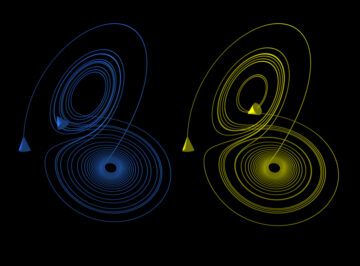Brian Klaas at Aeon Magazine:
 How can we make sense of social change when consequential shifts often arise from chaos? This is the untameable bane of social science, a field that tries to detect patterns and assert control over the most unruly, chaotic system that exists in the known Universe: 8 billion interacting human brains embedded in a constantly changing world. While we search for order and patterns, we spend less time focused on an obvious but consequential truth. Flukes matter.
How can we make sense of social change when consequential shifts often arise from chaos? This is the untameable bane of social science, a field that tries to detect patterns and assert control over the most unruly, chaotic system that exists in the known Universe: 8 billion interacting human brains embedded in a constantly changing world. While we search for order and patterns, we spend less time focused on an obvious but consequential truth. Flukes matter.
Though some scholars in the 19th century, such as the English philosopher John Stuart Mill and his intellectual descendants, believed there were laws governing human behaviour, social science was swiftly disabused of the notion that a straightforward social physics was possible. Instead, most social scientists have aimed toward what the US sociologist Robert K Merton called ‘middle-range theory’, in which researchers hope to identify regularities and patterns in certain smaller realms that can perhaps later be stitched together to derive the broader theoretical underpinnings of human society. Though some social scientists are sceptical that such broader theoretical underpinnings exist, the most common approach to social science is to use empirical data from the past to tease out ordered patterns that point to stable relationships between causes and effects. Which variables best correlate with the onset of civil wars? Which economic indicators offer the most accurate early warning signs of recessions? What causes democracy?
more here.
Enjoying the content on 3QD? Help keep us going by donating now.
